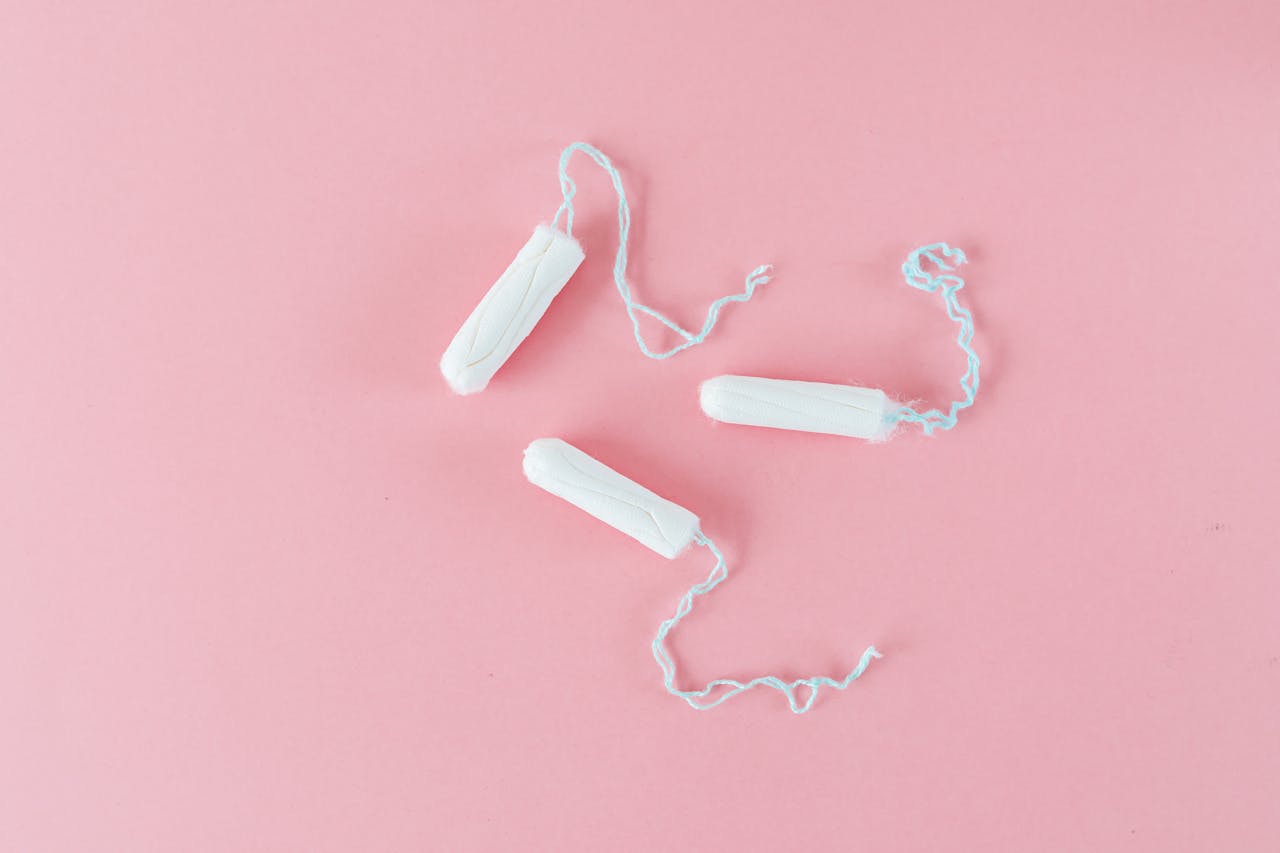Can you still have a period and be pregnant? Exploring the possible causes

Can you still have a period and be pregnant? Click to learn about the possible causes of bleeding in pregnancy and find recommendations on when to see a doctor.
Can you still have a period and be pregnant? The answer is a firm no. Period bleeding can only occur when conception didn’t happen. In this case, the egg gets reabsorbed into the body, progesterone levels drop, and the uterine lining breaks, causing menstruation.
If you’re pregnant, this cannot happen. However, it’s possible (and rather common) to experience vaginal bleeding due to other reasons, such as:
- Implantation
- Cervical changes
- Hormonal shifts
- Miscarriage or ectopic pregnancy
Normal pregnancy bleeding is usually easy to distinguish from menstruation. In most cases, it’s lighter in flow and color and has a shorter duration.
{{button}}
So, you’ve been trying to conceive for some time. Then, you’ve finally noticed early pregnancy signs, or tested positive, and…got your period. We bet that this situation can be incredibly confusing and even alarming. We all know that a missed period is one of the main, surefire signs of early pregnancy. But can you still have a period and be pregnant?
Although it can cause distress, bleeding during pregnancy (especially in its early stages) is not at all uncommon. It happens to many women and can have a variety of different causes. In this article, we’ll guide you through each of them, detail how to distinguish menstruation from other types of pregnancy bleeding, and give you some tips on when to talk to a doctor.
Can You Still Have a Period and Be Pregnant?
As we mentioned earlier, a missed period is one of the first signs of pregnancy. So if you are wondering in which month periods stop in pregnancy, the answer is: it stops instantly after you conceive.
Respectively, it can feel confusing and distressing to get your period when you’re already pregnant. But it’s not uncommon. According to studies, 20-30% of pregnant women experience some kind of vaginal bleeding in the first 20 weeks of pregnancy. This bleeding can resemble your period and confuse you, but, in reality, it’s not the same as menstruation.
Understanding the Phases of the Menstrual Cycle
So, can you be pregnant and still get your period? The short answer is “no.” Although it’s possible to have vaginal bleeding during pregnancy, it’s never exactly your period.
This is easily explained by looking into the main phases of a menstrual cycle:
- Menstruation – This is the phase when you have your period. It marks the beginning of a new menstrual cycle and typically lasts from day 1 to 7.
- Follicular phase – When your period is over, you enter the follicular phase. This phase lasts for about 7 days until your ovulation starts. During this time, your ovaries will actively produce estrogen that will stimulate the growth and thickening of the uterus. And two other hormones, follicle-stimulating hormone (FSH) and luteinizing hormone (LH), will stimulate your ovarian follicles to grow, form an egg, and ensure its maturation.
- Ovulation – This is a short phase of your cycle that usually takes place on day 14 (if the cycle is 28 days long) and only lasts for 12-24 hours while the egg remains viable. During this stage, your ovaries release a mature egg, which moves toward the uterus and waits to meet the sperm. This is the point of your cycle when conception is possible, within the hours of the egg's viability.
- Luteal phase – The last phase of your cycle begins right after ovulation and lasts until the next period. During the luteal phase, if there is no defect, your body produces more progesterone to thicken the uterine lining and facilitate a potential pregnancy. If the egg is fertilized during ovulation, it will not travel to the uterus and implant into its lining. However, if it’s not fertilized, it will reabsorb, signalling to your body that it doesn’t need such a thick uterine lining because there is no pregnancy. So, by the end of the luteal phase, the lining will break and pass out as blood and tissue, starting your period.
Based on this breakdown, we can clearly see that your monthly period is the result of the uterine lining shedding when pregnancy didn’t occur in the current cycle. If a pregnancy did occur, the lining remains intact. Respectively, there is no way to be pregnant and have periods.
Possible Causes of Bleeding in Pregnancy
So, it’s impossible to have your period and, at the same time, be pregnant. However, this doesn’t mean that you can't have vaginal bleeding.
In fact, vaginal bleeding is a rather common occurrence, especially in early pregnancy. And it can be caused by a number of reasons:
Implantation Bleeding
Implantation bleeding is the most common cause of vaginal bleeding during early pregnancy, with 1 in 4 women facing it. It usually occurs around 10-14 days after ovulation. At this time, the fertilized egg reaches the uterus and attaches to its walls for a pregnancy to begin. The process of implantation can cause damage to the uterine wall, causing bleeding.
Since implantation happens just around the time of your next period (14 days after ovulation), you can mistake them and think that you had your period while being pregnant. But it’s possible to distinguish them by the color, flow, and duration of bleeding. Implantation bleeding is usually significantly lighter in flow, lasts for several hours to 2-3 days, and is pinkish or brownish without visible clots.
Cervical Changes
Your cervix undergoes a number of changes to accommodate and support early pregnancy. It becomes softer and might change its position, rising higher in the vagina. Because of the changes in its structure, the cervix can become more vulnerable to damage and cause bleeding. This is especially common if you had sex or masturbated using large toys and something bumped into your cervix in the process. In a normal setting, this could give you a bruised cervix. But when you’re pregnant and it’s softer than usual, it can cause the breakage of blood vessels and bleeding.
How to distinguish it? If cervical changes or damage are the cause of vaginal bleeding, you’ll typically experience light spotting or a bit heavier bleeding of pinkish color. Often, this occurs after sex.
Hormonal Shifts
If you are already in week 6-8 of pregnancy and experience vaginal bleeding, another possible cause is a change in your hormonal balance. At this time, you have the so-called “luteal-placental shift.” This is an event in which your placenta is developed enough to start producing the hormones needed to support pregnancy. As these hormones surge, you’ll experience a temporary drop in progesterone levels, which can result in bleeding.
Hormonal changes and a progesterone drop can cause light spotting. However, they can also cause heavier bleeding, very similar to menstruation. Sometimes, it can only be distinguished by a light pink or brownish color, which is not typical for menstruation. So, if you’re wondering: had full period, but pregnant how? Hormonal shifts might be the answer, especially in weeks 6-8.
Miscarriage or Ectopic Pregnancy
Sometimes, the cause of vaginal bleeding in pregnancy is a miscarriage or ectopic pregnancy. A miscarriage can take place in up to week 20-24 of pregnancy, with the majority of cases occurring in early pregnancy, before week 13. The signs of an ectopic pregnancy can appear around week 6-8.
If you experience vaginal bleeding around these times, there is a risk of one of these events. However, these causes might be the easiest to distinguish because they always come along with some other symptoms, such as pain in the lower abdomen, cramping, or visible clots in the blood.
Can You Get Your Period and Still Be Pregnant in the First Month?
Noticing vaginal bleeding in the first month of pregnancy is probably the most confusing. Usually, you would have your menstruation around 14-16 days after ovulation. And if you already know that you're pregnant, discovering bleeding at the same time is always misleading.
As we already mentioned, it’s technically impossible to have your period and be pregnant. However, there are many other bleeding types that you can mistake for menstruation.
In the first month of pregnancy, it can actually be:
- Implantation bleeding
- Bleeding after sex (typically due to cervical damage)
- Hormonal changes
- An infection
- A subchorionic hematoma
- An ectopic or molar pregnancy
- A risk of miscarriage or miscarriage
When to See a Doctor
Vaginal bleeding in pregnancy isn’t rare. Furthermore, most of the possible causes, such as implantation, hormonal shifts, or cervical changes, shouldn't be a cause for concern.
Still, if you are facing any kind of bleeding in pregnancy, of course, it’s important to watch your symptoms and see a healthcare provider if you notice anything disturbing. Here are a few tips on what to do and when to see a doctor:
- Don’t get too worried about light bleeding or spotting, but notify your healthcare provider about it on a scheduled visit.
- Seek immediate attention if:
- Bleeding gets too heavy.
- Spotting or bleeding (even light) continues for more than several days.
- You see clots in the blood.
- You have additional symptoms like pain, fever, etc.
- You have a Rh-negative blood type.
FAQ
Can you be pregnant and still get your period?
No. Periods take place after the luteal phase of the menstrual cycle. It only begins if conception didn’t happen, which causes the uterine lining to break and pass out in the form of period bleeding. If conception happens, the uterine lining doesn’t break, and menstruation is not possible.
Can you get your period and still be pregnant in the first month?
No. Even in the first month of pregnancy, you can’t be pregnant and get your period. However, it’s common to experience vaginal bleeding due to other reasons, such as implantation, hormonal changes, cervical changes or damage, infection, etc.
Had full period, but pregnant how to act?
If you have vaginal bleeding that resembles a full-fledged period in terms of color, flow, and duration, it’s important to seek instant medical attention. While light bleeding or spotting is often not the cause for concern, any heavy or prolonged bleeding is abnormal and requires a consultation with a professional.
Conclusion
So, can you still have a period and be pregnant? As you now know, this is impossible. Your periods cease the moment the egg gets fertilized and attaches to the uterine lining. From this moment, any bleeding is not related to your periods.
Nevertheless, experiencing non-menstrual vaginal bleeding is quite common, especially in early pregnancy. Most often, it occurs because of implantation, hormonal shifts, and cervical changes. However, sometimes, it can indicate a risk or a bigger problem, which is why it’s important to watch your symptoms and talk to a doctor if you notice anything disturbing.
{{pink-banner}}






.jpg)

.avif)
